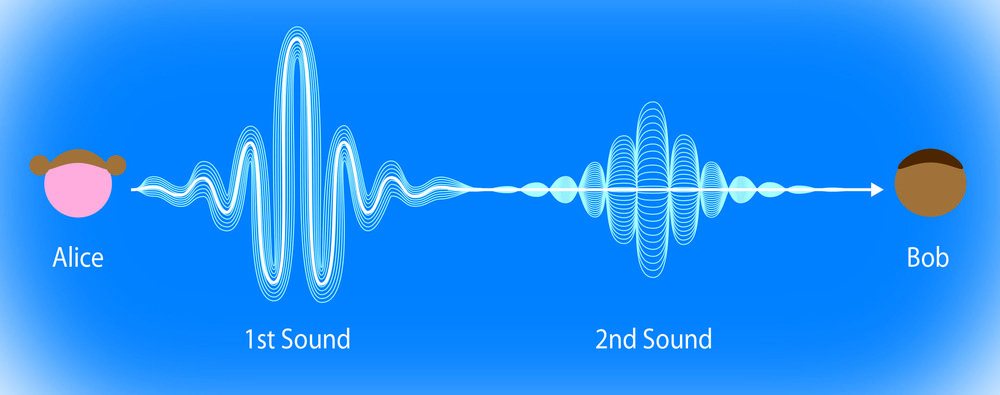There are two sound velocities in a Bose-Einstein condensate. In addition to the normal sound propagation there is second sound, which is a quantum phenomenon. Scientists in Ludwig Mathey’s group from the University of Hamburg have put forth a new theory for this phenomenon.
When you jump into a lake and hold your head under water, everything sounds different. Apart from the different physiological response of our ears in air and water, this derives from the different sound propagation in water compared to air. Sound travels faster in water, checking in at 1493 m/s, on a comfortable summer day of 25°C. Other liquids have their own sound velocity, like alcohol with 1144 m/s, and helium, if you go to a chilling −269°C for its liquefied state, with 180 m/s.
These liquids are referred to as classical liquids, examples for one of the primary states of matter. But if we cool down that helium a few degrees more, something dramatic happens, it turns into a quantum liquid. This macroscopic display of quantum mechanics is a superfluid, a liquid that flows without friction.










Comments are closed.